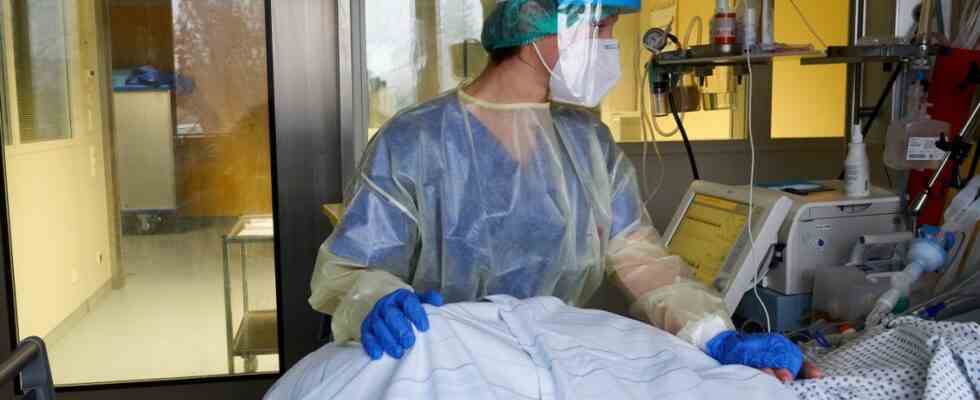We usually reposition all patients in our intensive care every two hours, i.e. three times per shift – unless they can do it themselves. On the one hand, this is to prevent them from getting sore, and on the other hand, it is simply uncomfortable to always lie in the same position. But when the ward is overcrowded, it’s time to set priorities. This can mean that some patients are only repositioned twice per shift. Such a day was recently. When I came to the late shift, there were 17 patients to attend to. Actually, we are designed for a maximum of 14. 17 patients is 21 percent more than it should be. So three cases more or less makes a huge difference to our work.
Such high overcrowding is rare, because when all our beds are occupied, we report to the central control room. Emergencies can still come to the emergency room first, this is called acute occupancy. These are patients whose lives would be threatened if they were to travel to a clinic further away. In most cases, however, it is not such external emergencies that lead to overcrowding. Much more often it is patients from the house whose condition has deteriorated.
First of all that day we tried to transfer patients to get some air again. Because it can happen at any time that another case has to come to us. The prerequisite is always that the state of health makes a transfer possible at all. In that late shift we were able to take one patient to another clinic and another one back to the normal ward.
Intensive care specialist Pola Gülberg from the Ebersberger district clinic.
(Photo: Peter Hinz-Rosin)
A nursing trainee accompanied me to the beds of the three ventilated patients I cared for. That was great, because I automatically carried out the individual steps a little more slowly in order to be able to show and explain them. This helped to stay organized despite the heavy workload. My patients didn’t notice the hustle and bustle that was outside in the corridor – and I always make sure that there is no place for stress in the patient’s room. Because if I jump around the bed and work frantically, it makes my patients restless – if in doubt, this will make them unstable.
We were working like robots, but that too can become dangerous after a while: when the sensitivity decreases, you no longer notice certain things. But we take care of seriously ill people, we must not miss anything. There wasn’t time for a regular break, but we went out for a few minutes to have a coffee and a bite to eat. Because even such a short break ensures that we are focused again afterwards.
Pola Gülberg is an intensive care nurse. In this column, the 38-year-old talks about her work at the district clinic in Ebersberg every week. The collected texts are below sueddeutsche.de/thema/Auf Station to find.

